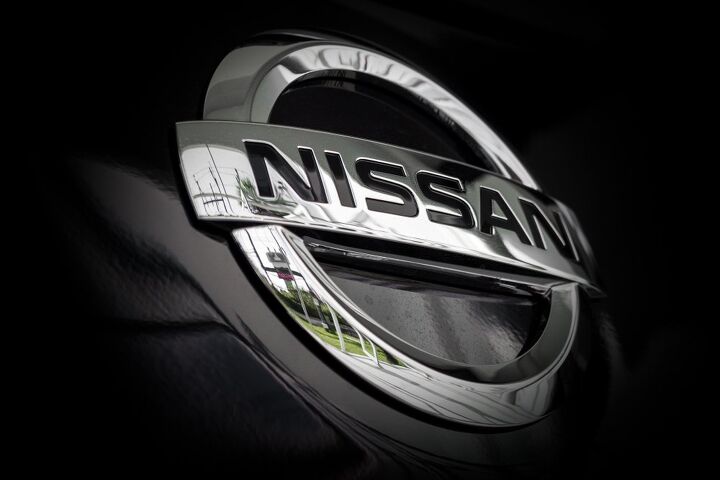
Nissan is ending operations in Russia. The company has announced that it has sold its assets to the Russian government for a single Euro, which actually sounds like one hell of a deal considering Nissan estimates the decision will cost the business roughly 100 billion yen – or $687 million USD.
With 2,000 employees located within the country, the automaker expressed some amount of regret for pulling out. But the geopolitical situation is making it tricky for any business that moves a lot of product on Western markets to continue operating inside of Russia. We’ve already seen a handful of automakers vowing to abandon the region, along with hotels and fast food chains. While the majority of these businesses are sold to the state or wealthy magnates to become generic versions of their former selves, this has proven much harder to accomplish when automotive factories come into play.
“On behalf of Nissan, I thank our Russian colleagues for their contribution to the business over many years,” Nissan President and CEO Makoto Uchida said in a Tuesday statement. “While we cannot continue operating in the market, we have found the best possible solution to support our people.”
Nissan leaves behind a sizable employee base, all of whom will reportedly receive some form of employment protection for 12 months, a factory in St. Petersburg, and the Sales & Marketing Center located in Moscow. However, it has retained the option to buy all that back within the next six years, similar to the deal Renault made during its own Russian pull-out.
As for how this will affect Nissan, the automaker produced 56,000 vehicles annually at the St. Petersburg plant prior to the pandemic with the company enjoying a 6.5 percent share of the overall market in 2018. But due to novel hurdles pertaining to the Russo-Ukrainian War and supply constraints stemming from pandemic-related restrictions the automaker doesn’t foresee the pullout being any more harmful to its bottom line than sticking around.
Renault wasn’t so lucky due to its substantial ties to AvtoVAZ – Russia’s largest automaker. The company seemed visibly hesitant to remove itself from the market until Ukrainian President Volodymyr Zelensky addressed French lawmakers, mentioning Renault by name. Following increased political pressure, the company sold all of its assets to the Russian government.
“Renault, Auchan [and] Leroy Merlin must stop sponsoring the Russian war machine, and the murder of children and women, rapes, robberies and looting committed by the Russian army,” Zelensky said in a video address to France’s National Assembly. “All companies must remember that values are worth more than profit.”
Hopefully, Renault feels similarly, because the company expects its net income for the 2nd half of 2022 to be €331 million ($322 million USD) lighter than originally presumed. On the surface, it sounds impossible that Renault will be taking a hit while Nissan thinks it’ll be breaking even. But the former entity holds roughly 30 percent of the Russian market (again due largely to having been a majority stakeholder in AvtoVAZ). Nissan’s share is a fraction of that and has been gradually shrinking over the last few years.
Plenty of other automakers have vowed to suspend or limit operations in Russia after Western sanctions were introduced, though most don’t have the kind of sales volumes or localized assets for it to really matter. Though there have been exceptions – including Toyota, Suzuki, AB Volvo, Daimler Truck, BMW, and Mercedes-Benz.
Volkswagen is another major brand in the region and has already announced it would cease all exports to Russia while simultaneously suspending production at plants in Kaluga and Nizhny Novgorod. Though it didn’t seem thrilled about the prospect of losing business. The company made its announcement in March, adding that it was hoping the sweeping sanctions imposed by the European Union and the United States would be clarified.
Renault and Nissan’s decision to abandon Russia have left less to the imagination. They’re out of the market entirely, with the possibility of buying back their old stuff being left on the table. While they’ll be impacted differently by the pullout, the duo seem to be enjoying a momentary realignment and have expressed an interest in strengthening their relationship. Earlier this week, the pair announced that they would be holding meetings to discuss the future of their ongoing alliance – making mention that the Japanese automaker was considering investing in a new electric vehicle venture helmed by its French partner. Though this is unlikely to fall outside of the purview of the existing $26-billion investment designed to ensure the Renault-Nissan-Mitsubishi alliance goes all-electric.
[Image: Memory Stockphoto/Shutterstock]
Become a TTAC insider. Get the latest news, features, TTAC takes, and everything else that gets to the truth about cars first by subscribing to our newsletter.

